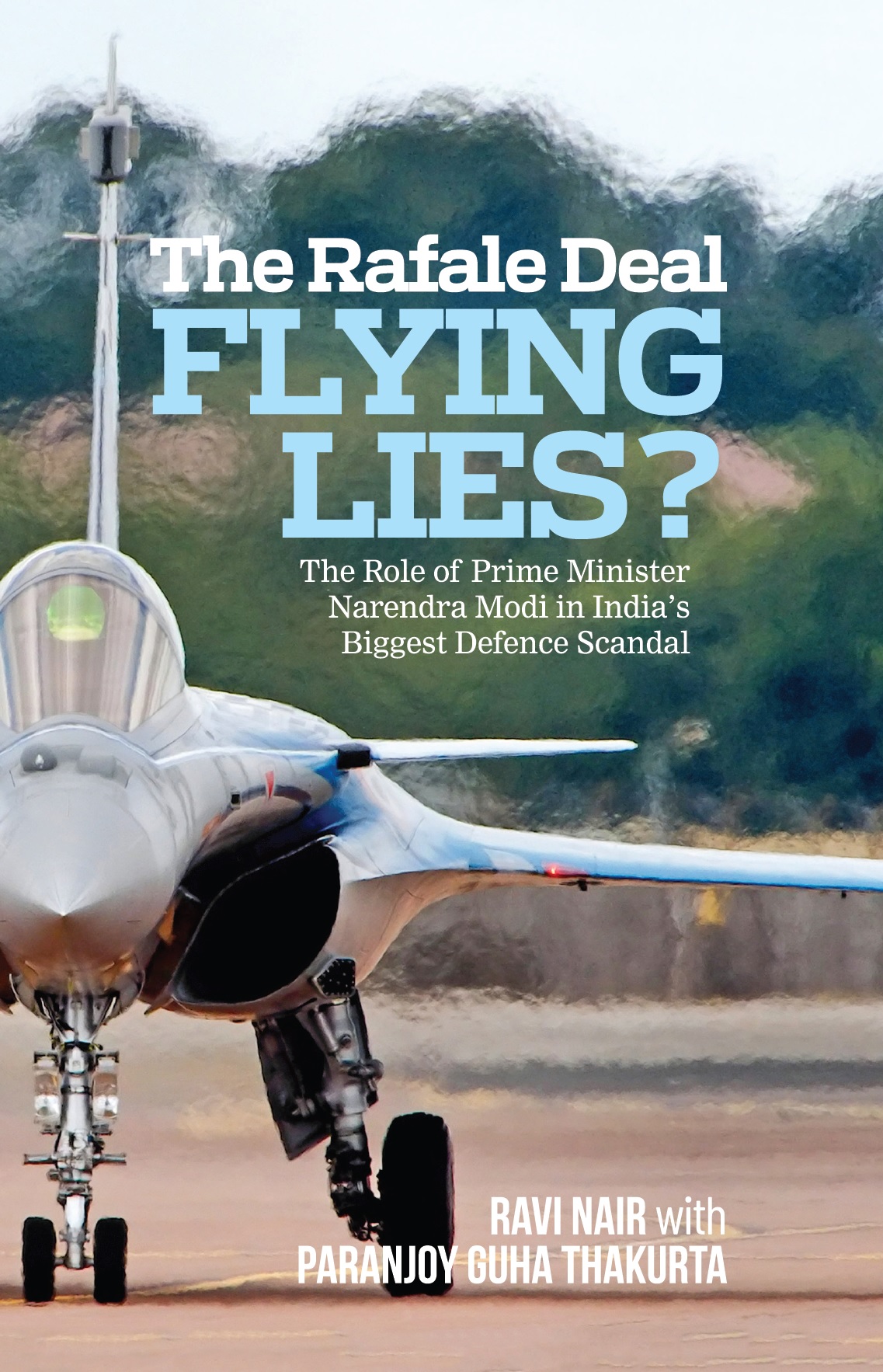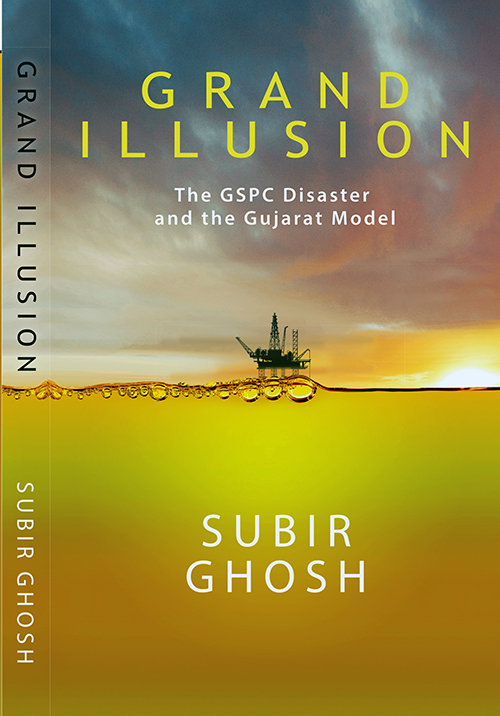Some Questions and Answers on a Tycoon, a Law Officer and an Editor
Question: What is the nature of the relationship between one of India's richest men and the country's top legal officer?
Answer: Good friends.
Question: Can legal notices be deployed to prevent a publication from coming out with an article even before it is published?
Answer: Such attempts are indeed made but these are not always successful, since not all editors and publishers are easily intimidated or buckle under pressure.
Question: Are the above two questions related?
Answer: Yes.
Question: Who is among the richest men in India?
Answer: Anil Ambani, head of the Anil Dhirubhai Ambani Group (ADAG) which, according to its website, is "among India’s top three private sector business houses on all major financial parameters, with assets in excess of Rs 180,000 crore and net worth to the tune of Rs.89,000 crore... the group has a customer base of over 100 million, the largest in India, and a shareholder base of over 12 million, among the largest in the world... the group touches the life of one in ten Indians every single day (and) has a business presence that extends to over 20,000 towns... 4.5 lakh villages in India and five continents across the world. The interests of the group range from communications...and financial services...to generation, transmission and distribution of power... infrastructure and entertainment". The group employs over 100,000 people.
Question: Who is the country's top law officer?
Answer: Attorney General of India Goolamhussein Essaji Vahanvati. The AG is the government of India's chief legal adviser who is appointed by the President under Article 76(1) of the Constitution and must be a person who is qualified to serve as a judge of the Supreme Court. The AG is responsible for giving legal advice to the government; he has the right of audience in all courts of India and has the right to participate in the proceedings of Parliament, though not vote. He appears on behalf of the government in all cases (including suits, appeals and other proceedings) in the Supreme Court. The AG can accept briefs but cannot appear against the government, defend an accused in criminal proceedings or accept the directorship of a company without the government's permission. Unlike the AG in the United States (who holds a position akin to that of the Union Law Minister in this country), the AG in India is not supposed to be a political appointee. However, this is not the case in actual practice. Every time a new government comes to power, all old law officers resign and new ones are appointed.
Question: Who served the legal notices?
Answer: Agarwal Law Associates, a Delhi-based firm of Supreme Court advocates (E.C. Agrawala, Mahesh Agarwal, Rishi Agrawala and Atul Sharma), whose clients include the ADAG led by Anil Ambani.
Question: On whom were the legal notices served?
Answer: The editor of the Caravan, an English monthly magazine published by Delhi Press Patra Prakashan. The magazine is edited, printed and published by Paresh Nath; its editor is his son Anant Nath and its executive editor is Vinod K. Jose.
It was the last fortnight of April and the editorial team of Caravan, which describes itself as a "journal of politics and culture" and argues that it is among the few -- if not the only -- English magazine of its kind in India that practices long-form journalism New Yorker-style, was putting together the May issue of the publication. It had been decided that the cover story would be on the country's 13th AG Vahanvati who, at that juncture, had still not acquired the kind of notoriety he subsequently did in the Coalgate scandal that led to the resignation of Law Minister Ashwani Kumar.
Nevertheless, AG Vahanvati had become quite controversial for the advice he had given to the Manmohan Singh government on various legal issues as well as his personal role in the second-generation (2G) telecommunications spectrum allocation scam which led to a public spat with the disgraced former Communications Minister Andimuthu Raja. The cover story on Vashanvati was being written by Caravan's young staff writer Krishn Kaushik who had spent a few months speaking to various people who knew Vahanvati. He had interviewed the AG himself as well as his son, not to mention some of his friends, critics and associates.
Even as the cover story, which had been allotted all of 15 pages in the magazine, was being given finishing touches, a letter arrived on the desk of the editor. It was a terse two-page legal notice dated 18 April from Agarwal Law Associates signed by Mahesh Agarwal. After expressing "concern" for our clients, the ADAG headed by Anil Ambani, the notice stated the following in its third paragraph:
"Our clients are shocked to know that your magazine is proposing to publish an article with the sole intention of causing malicious harm and injury. Several individuals have called our clients (sic) that they have been approached by your reporters to gather information about our clients' businesses. The tone, tenor and nature of the queries raised and information sought leaves no room for doubt that you have embarked on a vilification campaign of disinformation to cause damage and harm to our clients' business and reputation. It is evident that you are preparing to publish defamatory information concerning our clients' business. It is furthermore surprising that there has been no formal communication from your publication soliciting responses/clarifications from our clients regarding any comments you propose to make about them in your article."
Mahesh Agarwal's letter to the editor of Caravan urged him to note that the ADAG had given the law firm "peremptory instructions to lodge legal proceedings, both civil and criminal, in the event of your publishing any news or article or material that concerns our clients and is defamatory and/or malicious".
Even as lawyers engaged by the Delhi Press management were debating and discussing their future course of action, specifically, what kind of response should be given to the legal notice, another letter arrived from Agarwal Law Associates dated 22 April seeking compliance with the claims made in the letter dated four days earlier. Four days later, yet another letter dated 26 April was despatched to the editor and publisher of Caravan.
The top management of Delhi Press was apparently not particularly perturbed. The magazine had earlier (in 2011) been served a notice by a Silchar, Assam-based civil court judge on a complaint from the Indian Institute of Planning and Management headed by Arindam Chaudhuri, which was subsequently stayed by the Supreme Court. In this instance, the complainant had objected to his profile after it had been published in the magazine.
They went ahead with the story. On 29 April, the May issue of Caravan hit the news-stands in Delhi. That day itself, the cover story on Vahanvati was made available to readers on the magazine's website (http://caravanmagazine.in/reportage/inside-man). By then, the story had become topical as the AG's role in the Coalgate scandal had started hitting the headlines in newspapers and television channels every day.
Here are a few short excerpts from the five-part cover story -- entitled "Inside Man: The Convenient Opinions of Attorney General Goolam Vahanvati" -- that runs into nearly 11,000 words. These excerpts make it quite clear why attempts were made to stall its publication:
"A few days after Vahanvati’s promotion in June 2009, the well-connected journalist Prabhu Chawla, now the editor of the New Indian Express, told the lobbyist Niira Radia that Vahanvati was “an old friend of mine” during a taped phone conversation. “He is very close to Anil Ambani, everyone knows about it,” Chawla continued. “Anil Ambani, Nusli Wadia, and our power minister—kyaa naam hai? –Shinde, they all went for him for the appointment. (Governor of Karnataka and former Union Law Minister Hans Raj) Bhardwaj never liked him. Bhardwaj would not have made him the attorney general agar Bhardwaj law minister hotaa (if he was still law minister).” (When contacted for a comment, Chawla said Vahanvati was a friend, and declined to be interviewed for this story.)
"A close associate of Anil Ambani acknowledged Ambani's friendship with Vahanvati, but insisted that the two men were not unusually close, and that their acquaintance was of relatively recent vintage—after Vahanvati came to Delhi. Ambani, this person argued, naturally had dealings with many powerful people in government, and had only come to know Vahanvati through Ahmed Patel; Vahanvati, he said, was close with other corporate leaders as well—closer, this person said, than he was to Ambani.
...............
"When Anil Ambani’s name came up—as it inevitably did—in my conversation with Prashant Bhushan, he argued that Vahanvati should have recused himself from any matters involving Ambani or his companies. “Vahanvati told me himself that he is a close friend of Anil Ambani,” Bhushan said. He pointed out that Vahanvati continued to give opinions, or appear on behalf of the government, in cases where Ambani’s interests were at stake. “That, itself, is a conflict of interest.”
...........
"Whatever the nature of Vahanvati’s relationship with Anil Ambani, there are at least two cases where Vahanvati authored opinions pertaining directly to Ambani’s companies. In these cases, his opinions were both controversial and beneficial to Ambani’s interests. The first of these concerned one of the companies implicated in the 2G scandal, Swan Telecom; Vahanvati’s opinion forestalled an investigation into the company’s ownership patterns, though the CBI later determined it had been set up as a front company for Ambani’s Reliance Communications." The second case pertained to the ultra-mega power plant being set up in Sasan, Madhya Pradesh, by Reliance Power.
...........
When contacted by this correspondent, Anant Nath, editor, Caravan, declined comment on the episode.


